Reviews Narcos Pena Character Pedro Pascal Season 5
'Narcos' Flavor 3 Review: New Cartel, Same Problems in Netflix's Drug War Drama
Though the drama is a flake more than fluid without Escobar as the ballast, the sub-Michael Mann posturing that the prove relies on continues to deadening its more than engaging withal underdeveloped ideas.
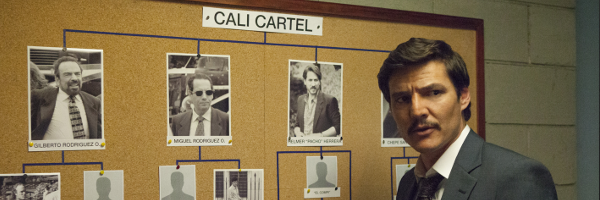
For a show that is rarely surprising, Narcos makes a pretty gutsy motility in attempting to move past the decease of Pablo Escobar in its third season. Wagner Maura'south seductive performance as Escobar served as an anchor to the Netflix show's first two seasons merely the testify'due south underdeveloped thematic ideas stretch far beyond the lifespan of the Colombian drug lord. In its most potent and radical sequences, the series depicts the cocaine trade as primordial capitalism enacted by peoples repressed by their own nation and oftentimes in conjunction with the U.s.a.,which is deeply committed to an unfathomably fatal, hypocritical, and unjust drug war. Escobar'due south death might look like a win to the American public and the DEA for a moment in Narcos, merely his downfall merely means the ascension of a more than ruthless, conscientious, and ambitious drug empire, namely the Cali Cartel. Would that Narcos' tertiary flavour had brought these ideas fully to the fore of the drama, though, with the change in focus from Escobar'due south Medellin Cartel and the Cali Cartel, from southern Colombia.
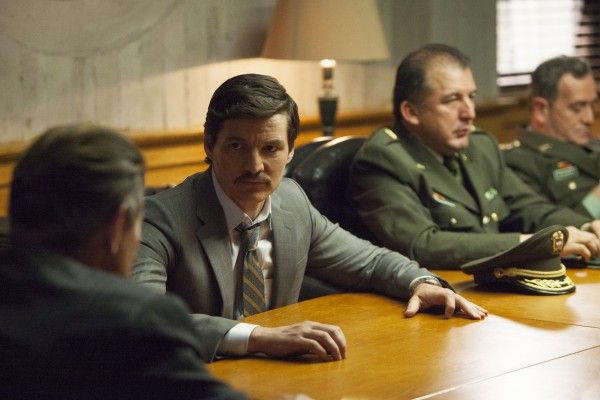
One of the more quickly noticeable advances that the third season makes is narrowing the narrative sprawl of the show. The battle over international drug policy at present comes downwardly to the five men who run Cali and Pedro Pascal'south agent Javier Peña, who returns home as a police enforcement superstar in the wake of Escobar'due south decease. The writing turns more than toward the inner-workings of the cartel and its competition in its better stretches: tented enclaves and dilapidated garages full of workers chopping upwardly production, middle-management keeping eyes out for betrayal, thievery, and laziness. Unfortunately, the undeniable primal to the bear witness's narrative depict is sex and violence, typified by an early sequence in which Pacho Herrera (Alberto Ammann), one of the heads of Cali cartel, rips an underling's head off using two motorcycles and some rope. The globe of the Cali cartel is involving plenty, powered by familiar cracks of internal strife betwixt partners and subordinates, only its insights and criticisms are frustratingly limited, weighed down by an abundance of plot-axial dialogue.
In contrast to the dare storyline, show creators Carlo Bernard, Chris Brancato, and Doug Miro explore Peña as a trembling, tailored veneer hiding a morally wrecked legal killer of perceived criminals, exasperated by the conspicuously illegal actions that led to Escobar's murder. From a distance, there are similarities here toClint Eastwood's recent spate of grave dissections of militaristic and governmental iconography – J. Edgar , American Sniper , Flags of Our Fathers , Invictus , etc. – peculiarly in its depiction of his deteriorating social life and arguable alcoholism. There's also a healthy dollop of spy business, near notably in his conversations with Eric Lange's affable, unsparing spook.
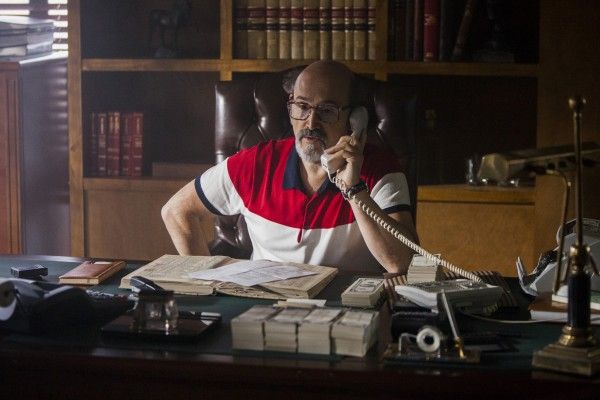
Pascal carries the series admirably, expanding the telescopic of his character through Peña's relationship with his male parent (Edward James Olmos) and, more than potently, within the DEA'south operations and evolving PR car. Despite such a assuming changing of the guard, the sluggish, brazenly expository voiceover remains and dulls the sensory experience of the deft camerawork. Much of the setting is thus rendered into little more than moody nature b-roll accompanying a deluge of plot that has piddling bearing on the action of the series.
Gunfights crackle, and horror fans might get some modest thrills out of the cartel'southward lengthy list of victims, but for all the emotional density given to Peña in the writing, the cartel members are never considered outside of their role as power-hungry, defensive drug lords. They are afforded little in the way of graphic symbol, left to spend most of the show exuding authorisation in an admittedly impressive multifariousness of exchanges, though nigh of it connects back to sex, coin, or violence.
For all the shake-ups in the cast and in the show'south scope, Narcos is still Narcos. Information technology'southward simply engaging enough to proceed up a basic involvement in its skeptical vision of the war on drugs and what it was similar to live in Colombia in the 1980s. What remains frustrating is that the series' intermittent passages of visual or narrative brilliance are regulated in the proper noun of a cat-and-mouse game overburdened past backstory and words in general. Such overabundance of talk barely veils a disappointing lack of conviction in the apparent ability of the imagery. The promise of Narcos remains tamed in the show'south third flavor and most turbulent refocusing to date, which suggests that this timidity is non a bug but a feature of the show.
Rating: ★★ -- Only for the defended
Narcos Flavour 3 premiered in full on September 1st on Netflix.
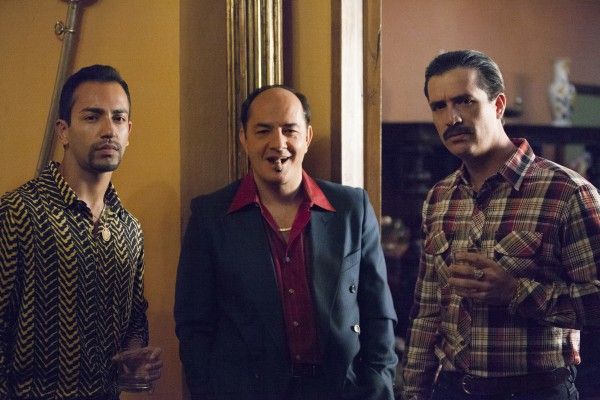
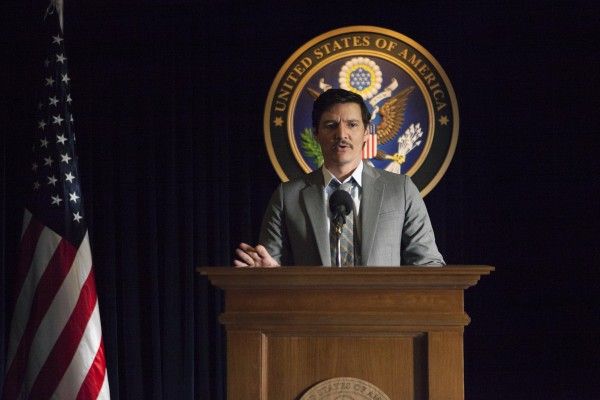
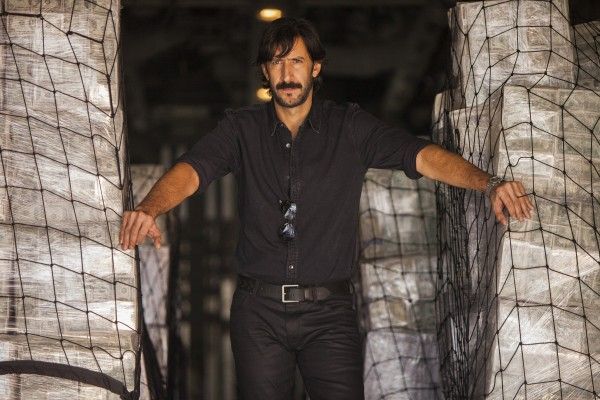
About The Author
Source: https://collider.com/narcos-season-3-review/
0 Response to "Reviews Narcos Pena Character Pedro Pascal Season 5"
Post a Comment